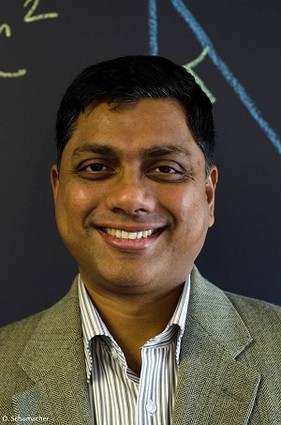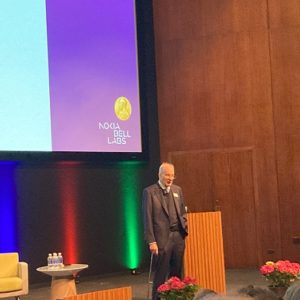What’s in Store for Education Technology in 2016?

Raj Valli, CEO of Tabtor | Tabtor
Given the proliferation of tablets and smart phones, what does the immediate future hold for the intersection of education and technology? In short, there will be even more tech influences in education, with an emphasis on moving the needle in terms of delivering real and measurable learning outcomes. Below are some issues that are likely to shape EdTech in 2016 and beyond.
1. Personalized Learning
Personalized learning got a boost in the news recently when Mark Zuckerberg mentioned his desire to invest in this sector in the open letter he wrote to his new daughter. This is not a novelty and is in fact the outcome of the efforts of many EdTech companies in the last few years. There are many drivers for seeing a continuing uptick in this trend. There is an increasing demand on our kids to learn more at an earlier age. There are structural shifts in the way we live today with increasing urbanization and the resultant traffic and longer commute times. Newer drivers such as the interest in having kids learn to code and the realization among parents and teachers that personalized learning does lead to significant improvement in learning outcomes — all will make personalized learning become the de-facto focus for 2016 among EdTech companies.
2. Coding
We live in an increasingly inter-connected world where technology is upending and transforming pretty much all that we touch. The way we bank, buy goods, get food delivered to our homes, consume books, measure and monitor our health and our overall behavior — are all driven by tech that is coded and crafted by people who want to understand how to make our lives significantly better and at a lower cost. A few companies have begun to make it easier AND fun to learn code. This trend is likely to spread to board games, toys, and apps that teach coding.
3. A.I. and Cognitive Science
We all learn something new each day — about ourselves, about the world in which we live, and about the tools we use for making our work more productive. It is only natural that we want the tools we use to become smarter along with us as we learn. For example, Nest thermostats have already begun to learn our temperature preferences within our homes and Google Now understands when we need to start to travel to our next meeting given traffic patterns! This has become possible as a result of the vast quantities of data crunched in real-time to gain insights and paint patterns, a capability that was unimaginable even five years ago. This trend will continue with EdTech companies as well, with robust tutoring companies able to infuse Big Data consumption and Artificial Intelligence into their products. IBM Watson is already working with some EdTech companies to make this a reality, which should have a significant impact in 2016.
4. Combining Physical and Digital
Until now, many digital tools have been strictly app- or software-related. 2016 is the year where we are likely to see more physical objects connected with virtual ones. We have seen robots that can be programmed by kids to interact with them, so the physical and digital have already started to merge. In 2016, we should start to see significant enhancements to this capability through virtual reality tools such as Google Cardboard and other “If This Then That” (https://ifttt.com/)-like tools.
Raj Valli is the CEO of Tabtor Math (@tabtor), a tablet-based math tutoring program he founded in 2010 that combines technology with a live tutor to provide students with a highly personalized learning experience. In October, the company beat out 170 entrants to win the North American competition for the Global EdTech Startup Awards (GESA). Raj previously served as chief of marketing and head of business development for WABCO Holdings Inc. and held leadership positions with Honeywell/AlliedSignal.

